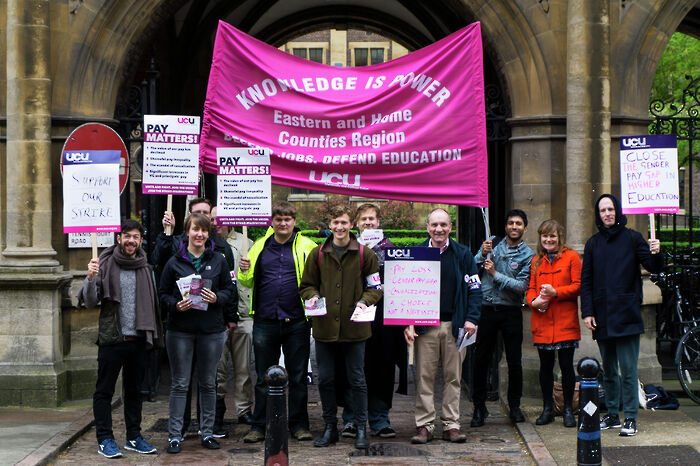Women’s role in activism shouldn’t be underestimated
It’s time to recognise that women play a crucial role in political activism here in Cambridge, argues Cecily Bateman

Women and activism have been inseparable throughout history. Although this is most obvious in protests for women’s rights, it is equally true of activism for all causes. The contributions of women to protests have been downplayed in two ways, however. Firstly, although women have nearly always been present on the frontline, the narrative of protests as told by the media and history books has often erased them. Furthermore, women have taken on the majority of the behind-the-scenes work, a fact which is largely overlooked.
Consider the 1984 Miners’ Strike: 23,000 women marched through London, whilst many others ran soup kitchens and brought food parcels, but the familiar narrative of the strike ignores female input. One woman is, of course, represented. Unfortunately, that woman is Margaret Thatcher.
“Women take on the majority of behind-the-scenes work, a fact which is largely overlooked”
The fact that women take on on the heaviest burden of behind-the-scenes activism is particularly relevant to Cambridge right now, given the biggest news of the moment: the UCU strike. Large, publicity-grabbing acts such as demonstrations are unmissable; people see the banners, smell the smoke and hear the chants. What is often overlooked, however, is the groundwork needed to keep these protests and strikes going. Women are hugely overrepresented in this work, which involves sorting out supplies of food, hot drinks and hand warmers. The first time I did the breakfast run to the picket line, there were approximately eight women and non-binary people volunteering… and one man. For the hot drinks run later, when the temperature hovered around 2°C, the volunteers were entirely women and non-binary people.
In this kind of weather - the picket line continued in spite of snow and sub-zero temperatures - these kinds of supplies are a necessity. Nevertheless, they are often overshadowed by grand marches and rallies. The disproportionate representation of women has been reiterated again and again by female and non-binary activists. This experience was not a one-off, but part of a wider trend.
In Cambridge, however, we can be proud that women are no longer under-represented on the frontline and, on the whole, there is not an absence of female leaders. In the UCU strikes, the actions of Cambridge Defend Education have often been headed by women; the speakers at the rallies included Daisy Eyre and Lola Olufemi. Other prominent campaigns such as Cambridge Zero Carbon Society feature women in visible positions of authority such as Alice Guillaume, ex-representative of the society on the Universities Divestment working group. At the top level of student organisation in the university, both of the female and non-binary candidates for CUSU president have been leaders in social activism. It is a sign of how far we’ve come that women feature prominently as some of the most known people in social activism around campus, but as ever, there’s always more to be done.
Women are also leading smaller activist endeavours. Just this week a friend of mine started collecting money within her college to buy sanitary products for homeless women in Cambridge. As soon as the call for donations was posted on the college group chat, another woman offered to help, and gave suggestions on appropriate products, drawing on her experience with a similar project in her home town. It is this kind of small, collective action that makes a huge difference to people’s lives, even if it isn’t on the front page.
For International Women’s Day, as well as celebrating how far we’ve come and the successes of women activists in history, let’s also raise a glass to all the women taking action right now- the good fight would never succeed without them
 Features / Cloudbusting: happy 10th birthday to the building you’ve never heard of30 March 2025
Features / Cloudbusting: happy 10th birthday to the building you’ve never heard of30 March 2025 News / Uni offers AI course for Lloyds employees30 March 2025
News / Uni offers AI course for Lloyds employees30 March 2025 News / Caius clock hand returned nearly 100 years after student prank31 March 2025
News / Caius clock hand returned nearly 100 years after student prank31 March 2025 News / Ski mask-wearing teens break into Caius accommodation27 March 2025
News / Ski mask-wearing teens break into Caius accommodation27 March 2025 News / Write for Varsity this Easter31 March 2025
News / Write for Varsity this Easter31 March 2025






